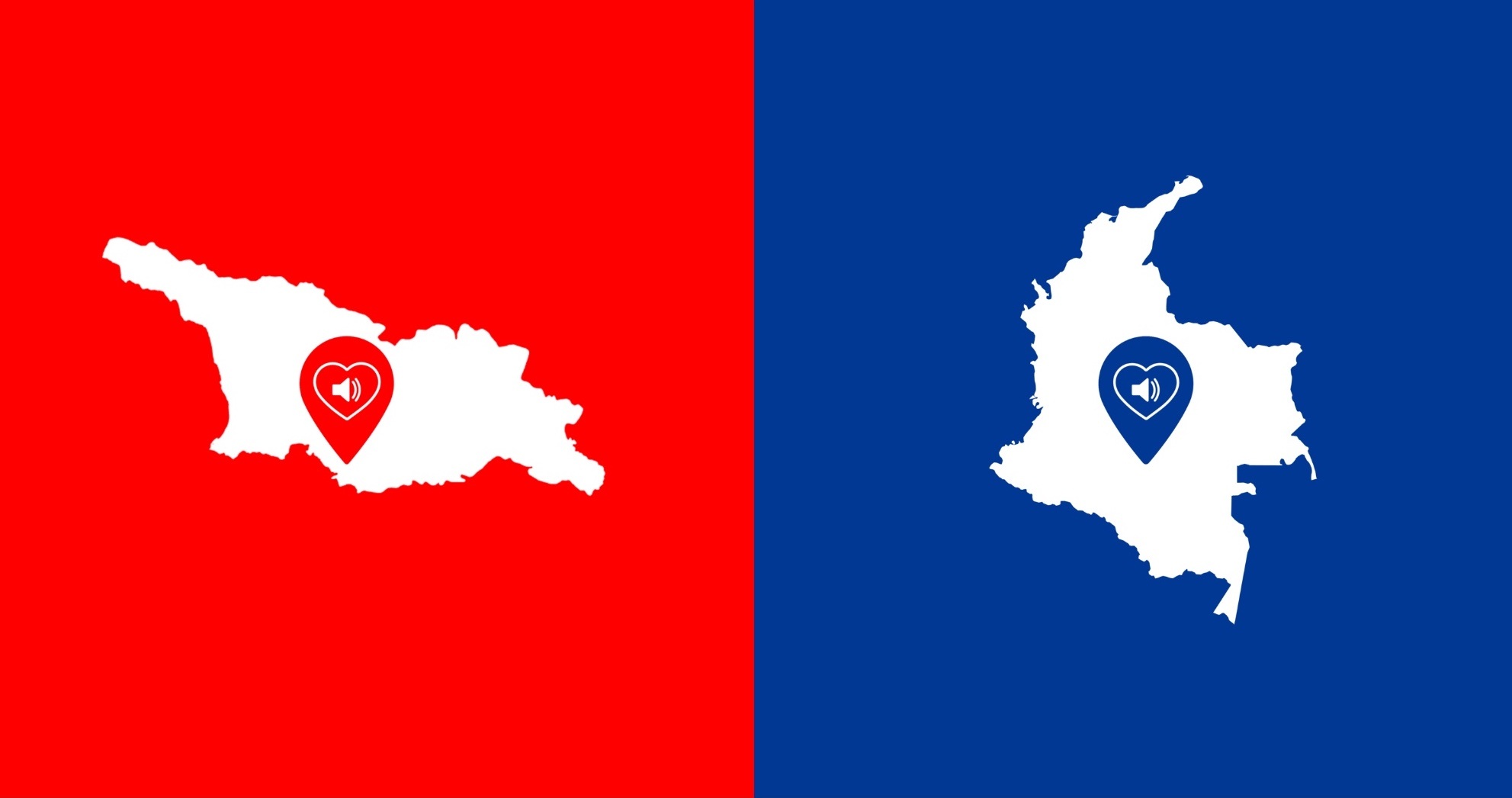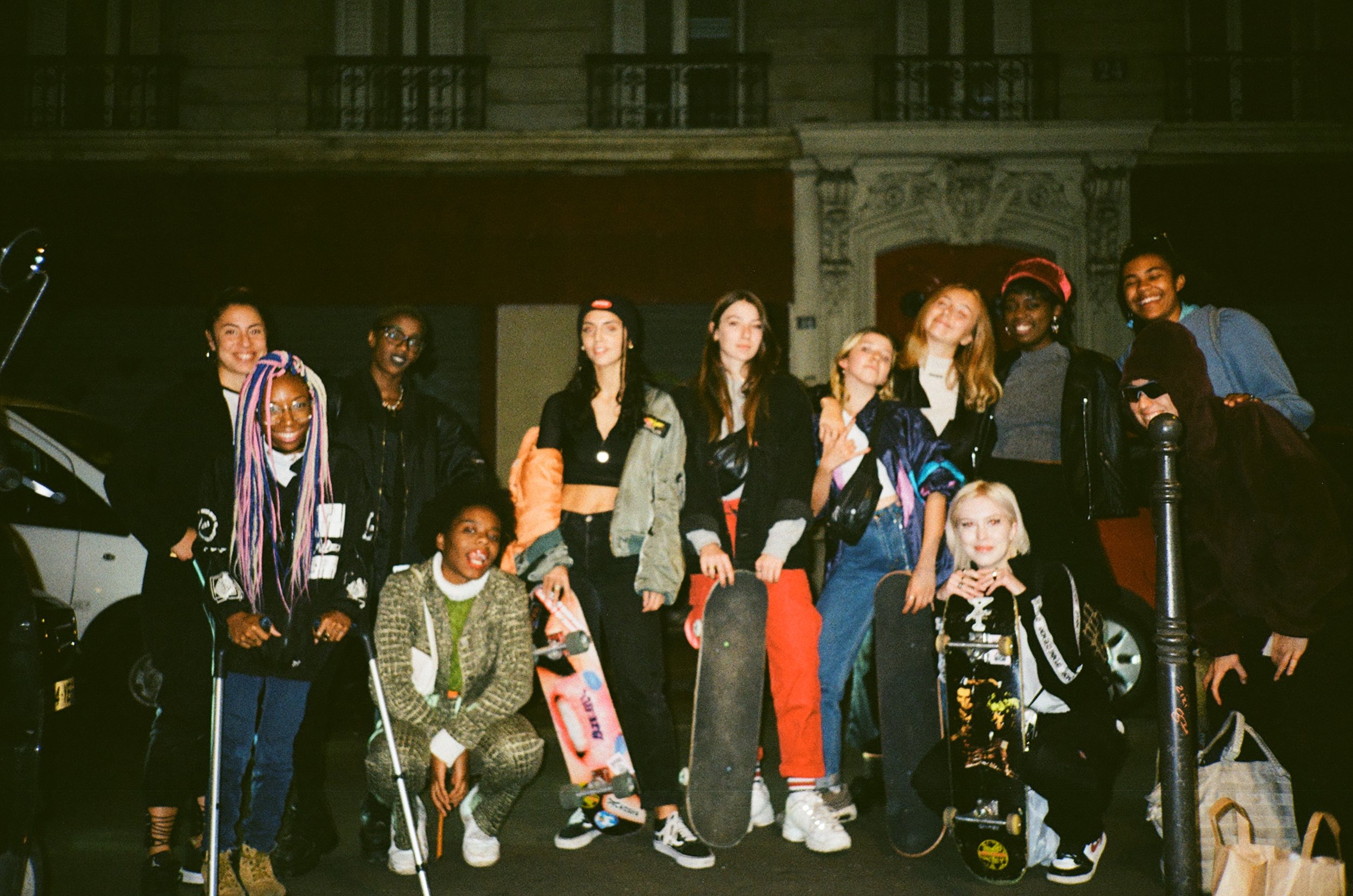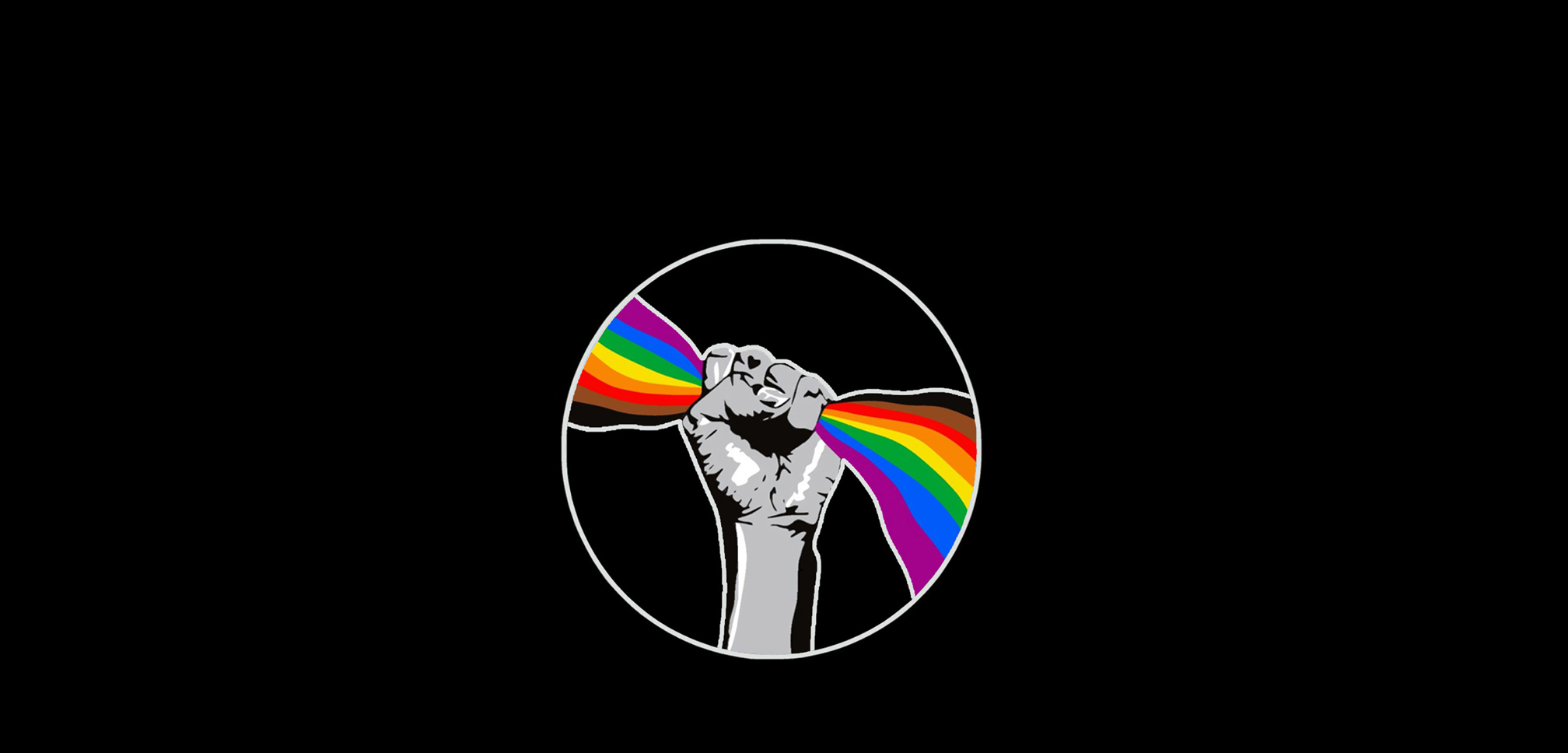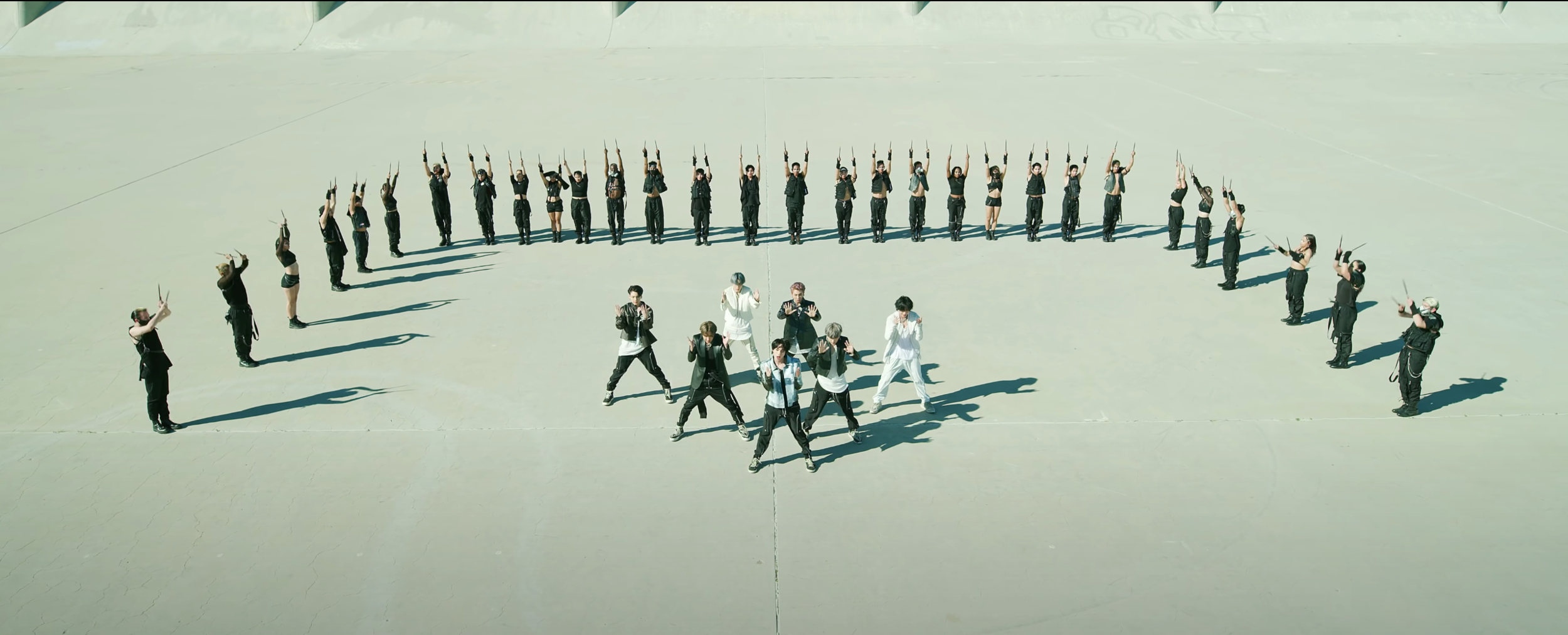Place:

Place : is a country-specific, electronic music series that curates underground artists and sends proceeds to local human rights groups. Out on June 1st with mixes from Colombia and Georgia, Good Trouble took a first-listen at the debut…
Electronic music cannot help but be defined by boundaries: from the flippant style of Chicago to the deep soul of Detroit, London’s rave-ready sound to Berlin’s concussive severity. Place:, the latest compilation series from NY-based Air Texture and Kompakt, reminds listeners of the shared virtues that inspire intimate artistic communities to challenge their local context.
Place : spotlights a burgeoning electronic music scene with each release and features otherwise scarcely-recognized communities of artists. A non-profit venture, proceeds will go to local human rights groups addressing deeply embedded structural issues. On June 1st, Place : debuts with a doubleheader: Georgia and Colombia. Funds will be directed towards the Human Rights Education and Monitoring Center (EMC) in Georgia and Mutante in Colombia.
The founder of Air Texture, James Healy, has amassed a team of curators who actively involved in their communities. Sandro Mezurnishvili and Giorgi lakobidze, who collated place : Georgia, are local DJs and producers. Julianna Cuervo, the curator of place : Colombia, claims many titles: DJ, Producer, promoter, record-shop owner. She is also a devoted feminist and founder of NÓTT, a feminist collective which aims to establish women’s roles in South American electronic music. Two hemispheres removed, their scenes are spirits made kindred by conservatism’s rising tide.
“Artists, as they do in situations soaked in pessimism, existential dread, and the crippling unknown, made due.”
The dissolution of the U.S.S.R resulted in independence for all member nations, including Georgia. Although free from Stalinist rule, uncertainties loomed; crime became endemic and the economy sputtered. Artists, as they do in situations soaked in pessimism, existential dread, and the crippling unknown, made due. Electronic artists in particular, despite frequent power outages and the lack of equipment, helped foster a stubborn D.I.Y. spirit and young club scene. Parties held in abandoned warehouses and attended by devoted fans who risked falling victim to the gangs common in those lawless settings. That was more than 20 years ago. Today Tbilisi, the capital, flaunts an internationally-praised electronic music scene— performers relish the opportunity to perform in front of their Georgian fans.
Despite its pivot West, the country remains the geopolitical jewel it has been for quite some time (lest the world forgets, the first 21st-century European war was fought on Georgian soil). And while the government remains resilient in the face of Putin’s bullying, pro-Russian sentiment remains a potent political force; a sentiment that sees a threat in the liberal views of Tsibili’s raucous party-goers.
The rave scene got directly involved in politics when draconian drug policy led to a raid on two cherished dance-music clubs last May. When police stormed into the two clubs, Bassiani and Cafe Gallery, they were armed with machine guns and abused partygoers, apparently all under the false pretense of five fabricated drug-related deaths. Club owners were arrested. The result: a two-day dance party on the steps of Georgia’s parliament building. The rallying cry: We dance together, we fight together.
Poster for upcoming roundtable and dance event in Caracas on May 31st.
Some Colombian Techno heads watched in envy as the protests went go viral. When right-wing President Duque officially killed the “minimum dose” laws, which allowed citizens to possess a stipulated amount of drugs, their political dance-party didn’t materialize. If Colombia’s ravers can’t rally around this issue, perhaps they can be galvanized on behalf of the displaced. According to the UN Refugee Agency, the total number of internally displaced persons (IDPs) in Colombia is nearly 7.4 million. Healy cited this unfortunate statistic when asked why he decided upon Colombia for the series’ initial release. The immense number of IDPs was driven by the 50-plus-year-long “Colombian Conflict”, and despite the peace agreement reached between the government and the FARC rebels in 2016, the number continues to climb.
Necessary in combing through the complexity of such an issue is impactful conversation—a pillar of Mutante’s mission, the nonprofit for Colombia. Realized through digital narrative projects and investigative journalism, Mutante “fosters issue-oriented audiences by engaging in social conversation.” Launched less than a year ago, they have explored topics ranging from “the normalization of abuse against domestic workers” to “proper sexual education”. Mutante has similar activist methods as EMC, which, in Healy’s words, “aims to reveal the structural causes of social and political inequality, (and) oppression.” Both nonprofits share the same sentiment: in the act of unearthing systemic problems they become subject to change.
Archiving, as radical historian Howard Zinn argued, is a form of activism. Any collection of primary sources will inevitably humanize its subjects. So, how does these sources actually sound?
“Archiving, as radical historian Howard Zinn argued, is a form of activism. Any collection of primary sources will inevitably humanize its subjects.”
Georgia boasts an ambient sound interwoven with an industrious pulse. Unassuming melodies persist behind concussive beats that nucleate stirring effects. Other tracks build meditative soundscapes. All build with a deliberate pace that creates an intoxicating tension. Despite the fact that each of the twelve producers leave their print on the “sound of Georgia”, the sounds are so coherent— so unified. Giorgi Iakobidze and Sandro Mezurnishvili, curators for this project, have an archival achievement on their hands. In contrast, the “sound of Colombia” is more irascible. Influences seem more varied, perhaps reflecting the melting-pot nightlife of Bogota and Medellin. Squelchy acid tones appear here. There are found analogue sounds reminiscent of Suzanna Ciani. Federico Goes by Hover sounds like a techno riff on early-2000s nu jazz. Then other songs don’t sound like any of that. Perhaps these are the eclectic sounds of a dynamic community still searching for their uniting voice.
On June 1st, listeners will be able to purchase the compilations through Bandcamp and iTunes; otherwise the album will be streamable on Spotify. New compilations will appear every four to six months. “Netherlands, Australia, Estonia, Ecuador, Russia, Italy, and Belgium are currently on deck,” Healy said. Healy plans on hosting a party in each country upon the records’ release, and even these parties have place:’s mission in its DNA as they will feature a roundtable with the local rights group (as pictured above). For Healy, his work isn’t about touring voyeuristically through a foreign world. His work, Julianna Cuervo’s work, Giorgi Iakobidze and Sandro Mezurnishvili’s work, is about the undeniable humanity that underpins the culture of electronic music’s endless mix, and the thrill of participating in a global network of musical resistance.
Preview the mixes below and keep updated with the project here:
Words by Borah
Author account for the Good Trouble hive-mind.







